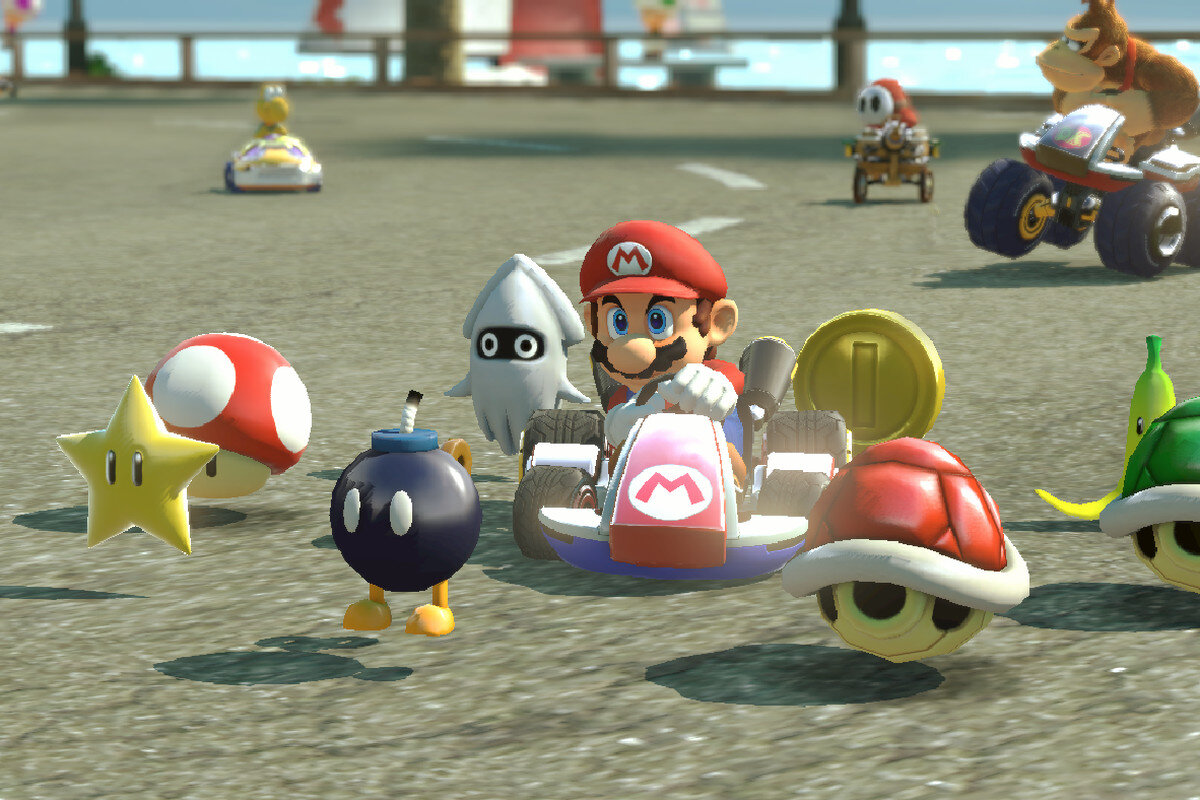US culture is Mario Cart - with banana skins.
Recently I was listening to some of my friends project their firm conviction that the US is messed up because it is capitalist, but Denmark works because it isn't.
Well that's not true. The citizens of both control their own production, and vote on how to spend taxes, so they are both Democratic Capitalism. Yet there is indeed a massive difference in how the two approach their economic game.
So we, dear readers, will explore how the two regions - USA and Scandinavia - differ in terms of the game they play.
And here it is: The Culture Determines the Game.
Denmark and the US have the same economic system, yet one shows all the communal support of a troupe of nuns who have just baked a tray of cookies, and the other would gun you down for your last choc-chip.
I’ll let you sort out which.
They are playing the same mechanics, but end up playing different games. The US is playing a racing game of winner-takes-all, and Denmark is playing a semi co-op where everyone wins if someone wins. The rising tide that lifts all boats.
One uses the vote to buy themselves more social infrastructure: Higher taxes, better schools, hospitals and public assistance. The other votes against this. But why?
Because their cultural values have them pursuing different goals, which then shapes the way they play the game.
Win condition 1: Superiority vs achievement
Since Herbert Spencer’s theory (not Darwin’s) of Survival of the Fittest, the US became convinced that only the winner mattered. Thus, industrialists like Rockefeller put forward the claim that their success was not only predetermined by his god, but now Mother Nature as well.
This invoked a highly competitive spirit. It doesn’t seem to matter how much you make, only that you are making more than all others around you. Anything short of this would be a sign of genetic deficiency and spiritual impurity.
Meritocracy exacerbated this disdain for coming second, as now if you didn’t succeed, you were also a lazy loser. Only one goal matters in US culture – to do better than others.
The culture of the US is a racing game. No matter your absolute result, your victory can only come in comparison to others. This goal means that it is a good strategic policy to hinder the successes of competitors. It is advantageous to hurt your competitors, even if this means hurting everyone in the game.
US capitalism is a game of Mario Carts, replete with banana skins to lob. Or lobby.
Now I want to pause here to be fair to US culture: Non-competitive economics is usually a dull affair that you couldn't really make a game out of, as explained later, but somehow the Americans have managed to make it FUN! Who would have thought that you could make living day-to-day scraping enough money together to raise a family into a thrill-ride of excitement?
Of course, this isn't everyone's idea of fun - especially if you're losing, so let's take a look at Scandinavia.
Scandinavians are also self-motivated, but the Scandinavian model buys into the idea of doing better than yourself yesterday, with less regard to comparing yourself to others. In this culture, why not help someone else? Why not help everyone?
A win for both of us is still a win for me, regardless of our relative positions.
Win condition 2: Team goals
The Scandinavian culture opens up a second goal: A win for all.
If your success leads to success for everyone, more wealth for the economy in total, and along the way afford better schools and hospitals, then of course I would help you. This cycles back, since with better schools comes better opportunities for people to create more wealth for everyone, which affords better schools, which…
As a result, their children are educated for free, even up to higher education. Their people are healthy, streets are safe and foods abundant.
Thus I say that the Scandinavian model is a semi co-operative game. Individuals have two goals, and they can both be achieved at once: win for yourself, and win for everyone.
Games like Gloomhaven, Dungeons & Dragons or Dead of Winter are good examples, with monsters thrown in because frankly, non-competitive economics is a dull affair that you can't really make an exciting game from. Think of a film where there is no competition and everyone wins, and I'll show you a really dull movie.
Pandemic Legacy comes to mind in a time like this... But anyway, let's look at Dungeons and Dragons as an example.
We all win if we defeat the dragon together, though Tom will get a bit more reward for contributing a bit more. Thus we work together and prosper together, while at the same time gaining for ourselves. If I were to cast a spell to make us all stronger, I would. The two goals are not in conflict, but in concert.
The goals in the US of a competitive individual win in comparison to others, and a group win, are often at odds with each other. Here, I might not want to cast that same spell - I'd be helping my competitor!
The Dynamics of Democracy
Democracy is the group decision on how to spend the collected capital from taxes. Here you can see how the two differing cultures choose different policies.
In a highly competitive individualistic system, you certainly would not be so keen to vote for something that would help competitors to your dynasty, like free education. No, you would be more likely to vote for the person who promised less tax so you can spend that money privately on things which benefited yourself.
Denmark also allows the people to choose what to do with all those taxes, but because of the better win afforded through investing in their own society, they chose to buy all the social infrastructure to make for a safe, prosperous, healthy and happy nation.
There is a particular joy in winning for something larger than yourself, in helping others of your own volition, and receiving the warm satisfaction and appreciation that comes from doing a good thing for others.
Altruism: The non-goal win.
A game must have a goal, but the aim of the game is not to win.
Charity, altruism, philanthropy and generosity – all the spirits of giving – rely on the free will of the donor to donate. In doing so, either by the act itself of the ego-stroking recognition that comes from it, the donor gets emotional payoff from having given.
In the same way, to play a game and regard winning as the only thing that matters is to ignore the purpose of playing: to enjoy the game.
This is altruism, and it feels good to do it. Sometimes this is through taxes, but the mechanics of voting for it, paying taxes and eventually seeing a new school built is not exactly immediate gratification.
We should encourage generosity in the same way as we should enable people to enjoy winning a game, whether or not their game is doing well. Adam Smith, the father of capitalism and moral philosopher suggested that we praise contributions and name hospitals after the biggest donor just to encourage generosity, and the good feelings that come from it.
Direct altruism – a culture of generosity and recognition – allows people to feel good to give. It is by no means a goal of the game, but it is the more important part of playing the game: to enjoy playing.
Because that is the human aim of all this. Coming first or defeating dragons might be the goal, but the true aim is to enjoy the game.


